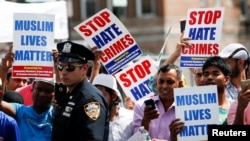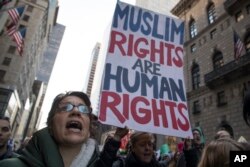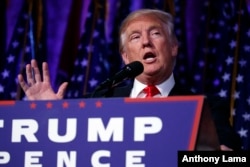Hate crimes against minorities rose 7 percent in the United States last year, the FBI reported Monday, with incidents targeting Muslims jumping 67 percent.
Hate crimes escalated to 5,850 from 5,479 last year, according to the bureau's latest data.
By contrast, hate crimes against Muslims jumped to 257 from 154 in 2014.
Bias-motivated offenses against Muslims accounted for 4.4 percent of all hate crimes in 2015 and 21 percent of religiously motivated crimes.
Anti-Muslim hate crime rose to its the highest level since the September 2001 terrorist attacks and the second highest on record since the FBI started collecting hate crime data in 1992.
The increase in anti-Muslim hate crime continued into 2016, with Muslim advocates and experts attributing it to a rise in Islamophobia, a backlash against terror attacks in the United States and Europe and political vitriol during the recent contentious presidential election in the United States.
"Retaliatory responses to escalating terror attacks in the United States and France, heightened and widespread anti-Muslim prejudice, and the mainstreaming of it in socio-political circles appears to be the main driver of the significant increase in these hate crimes," said Brian Levin, director of the Center for the Study of Hate and Extremism at the California State University at San Bernardino.
U.S. President-elect Donald Trump, whose campaign rhetoric was widely blamed for the surge in Islamophobia and anti-Muslim hate crime over the past year, urged his supporters in an interview on Sunday to stop harassing minorities.
"I am so saddened to hear that," Trump said in the interview with CBS's "60 Minutes" program. "And I say, 'Stop it.' If it -- if it helps, I will say this, and I will say right to the cameras: 'Stop it.'"
The FBI defines a hate crime as a criminal offense motivated in whole or in part by the actual or perceived group status of another, such as race and ethnicity, religion, disability, sexual orientation, gender and gender identity.






